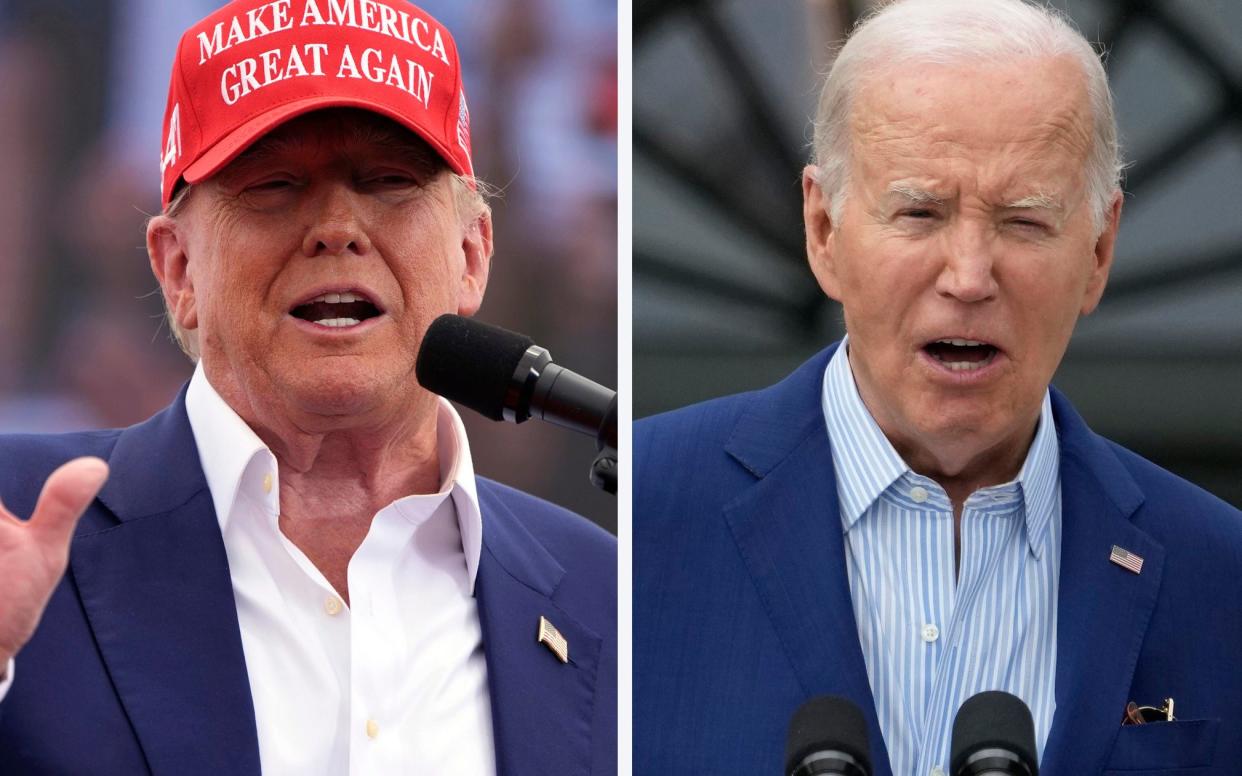Sorry, Joe Biden - age isn’t just a number when it comes to politics

Ten days from now, two elderly gentlemen will wander onto a platform in Atlanta, Georgia, and accuse each other of being elderly. Amid the urgent issues for discussion in the first debate between the candidates in the forthcoming US presidential election, age is being weaponised by both contenders.
Last week President Joe Biden (81) – or “Sleepy Joe”, as he is known in Republican circles – sent a mocking 78th birthday greeting to former President Donald Trump: “Take it from one old boy to another. Age is just a number”, he (or the staff who run his socials) wrote.
But Biden, perhaps distracted by Presidential duties (and the inconvenient conviction for gun crimes of his wayward son, Hunter) is late to the party when it comes to throwing shade on a person for being old. His apparent lapses – tripping, freezing, forgetting people’s names, and aimless wandering – most recently at last week’s G7 meeting in Italy – have been gleefully exploited by his opponents.
Denial of any problems, publication of the President’s health records (nothing to see here beyond a touch of sleep apnoea and a tiny root canal emergency), factual accounts (Prime Minister Rishi Sunak explained that Biden had politely gone to speak to some Italian parachutists at the G7), even Biden’s ever-vigilant wife, Jill, pointing out that “Joe and that other guy are essentially the same age” – none of it seems to land. While high-minded periodicals such as the New Yorker chronicle Trump’s own wayward elder behaviour, the perception persists that Biden is more decrepit than his rival.
If there is a paradox in the fact that the youth-obsessed New World has an octogenarian and an all-but-octogenarian contending for the Presidency, on this side of the Atlantic, attitudes to age seem a touch less fraught. If the 17-year age difference between the main party leaders, Rishi Sunak (44) and Sir Keir Starmer (61) has been an electoral issue, I have missed it – both seem to be regarded as occupying the extended hinterland of spry middle age.
Meanwhile, the presence of centenarian and near-centenarian veterans on the Normandy beaches at the recent 80th anniversary of the D-Day landings has acted as a sharp reminder of the veneration we owe to great age. Those gallant old men and women are a living link with events that will soon pass into history, and the current generations’ feeling of awe at the dutiful way they sacrificed their youth to serve their country, and their eloquent expression, 80 years on, of what it cost them, has engendered a degree of national self-examination about our attitudes to old age.
In some ways, the Old World still sees the generation of wartime veterans as its moral compass, while in the New World, where neither presidential candidate actually served in the military, the cult of youth persists, most notoriously in the person of the wealthy longevity-seeker Bryan Johnson, who had a rejuvenating transfusion of his teenaged son’s blood, and holds cheery-sounding “Don’t Die” dinners for guests including the Kardashians.
“If youth knew, if age could”, wrote the 16th-century French scholar, Henri Estienne, who might have marvelled at a world in which ancients astonish the young with self-effacing stories of unimaginable courage, while across the Atlantic, a pair of gerontocrats trade playground taunts in their battle for power.
Giving, not lending
A rueful correspondence in The Telegraph about the lending of books and their long-delayed return leads me to reflect that “lending” actually tends to mean “giving”.
Being literal-minded, it has taken me many years to realise this, and I still harbour a grudge against various “borrowers” of my possessions. In particular, I recall the tweezers from my Swiss Army knife, lent decades ago to a charismatic chef at The Telegraph who was having a pinbone emergency.
Years later, when I ran into him at a farmer’s market in Canterbury, my first words were, “Patrick, where are my tweezers?”
Needless to say, he hadn’t a clue what I was on about. So I have learned the hard way that a loan is actually a gift. And if you get it back, the gift is redoubled.

 Yahoo News
Yahoo News 
